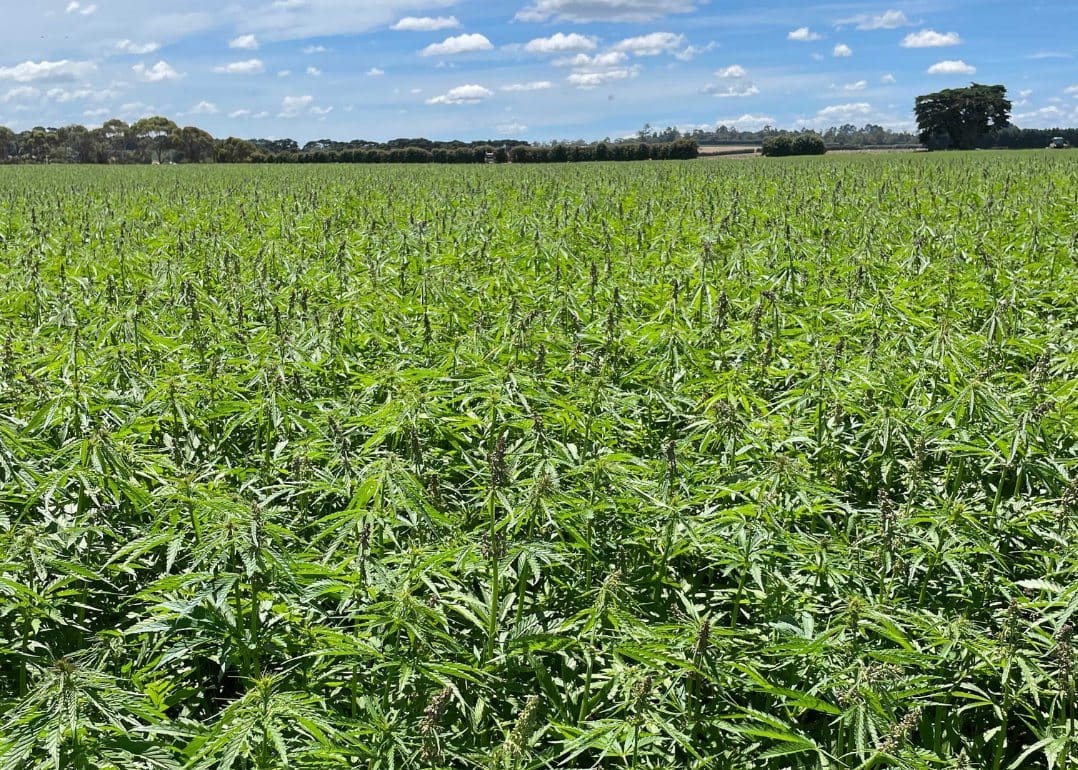
The Sustainable Nutrition Group (TSN) has entered into an agreement with APP to make isolates from hemp. Source: Australian Primary Hemp
AN AGREEMENT between Australian Plant Proteins (APP) and The Sustainable Nutrition Group (TSN) will see hemp join pulses and canola as a source of Australian-made plant-based proteins.
TSN, formerly known as Australian Primary Hemp, said in a statement it would be working with APP to develop hemp concentrate and isolates at the APP facility.
The hemp isolate is expected to contain 88-92 per cent protein, comparable with the profile of pulse isolates, and TSN will retain the intellectual property on the process and will market it exclusively and independently
Announced last week, the agreement coincides with the release last week of GrainCorp’s 2021 Sustainability Report, which states that GrainCorp is actively exploring multiple opportunities in alternative protein.
One of those is considering is an extraction facility that converts plant-based inputs such as soybeans, faba beans and canola into protein concentrates.
APP’s plant at Horsham in Victoria is Australia’s largest such facility so far, and earlier this year global agrifood giant Bunge Corporation took a minority stake in the business.
Long-time Australian oat processor Unigrain is also planning to build a plant at Smeaton in Victoria next year which will consume around 40,000t in total of field peas and faba beans per annum for starters.
Role for CSIRO
While all plants appear to be good news for Australian pulse growers, who previously had very limited options for value-adding in the human-consumption market, they are also showcasing Australian research in plant-based proteins as led by CSIRO.
As Australia’s national scientific-research agency, CSIRO has been involved in developing the technology that helped APP develop its process, which is already converting Australian faba beans into protein isolates.
CSIRO has also worked with v2food, whose products made at its Wodonga factory are primarily using imported soy isolates due to the domestic deficit in soy production.
CSIRO also got a mention in GrainCorp’s profit results announced on Thursday when GrainCorp managing director and CEO Robert Spurway outlined the company’s investments and ideas in alternative protein space.
“We’re working with CSIRO to develop a range of value-added options,” Mr Spurway said.
“They are meeting strong and growing global demand.”
GrainCorp is eastern Australia’s largest bulk handler, and Australia’s biggest oilseed crusher, with plants at Numurkah in Victoria and Pinjarra in Western Australia, but is not involved with further-processing of pulses as yet.
In its sustainability report, GrainCorp said it was also looking at partnering with key alternative protein producers to develop new inputs for their direct-to-consumer products such as alternative-protein burgers and steaks.
It is also working with CSIRO and other scientific bodies to look at establishing canola as an alternative protein input, initially for animal feed and ultimately human consumption.
GrainCorp said manufacturing of alternative proteins could provide its animal feeds business with valuable by-products from extrusion.
“The rapidly growing alternative protein sector is one of GrainCorp’s priority growth themes,” the company said in its 2021 Sustainability Report.
“The carbon footprint of plant-based proteins is significantly less than that of animal proteins, and forecasts have shown that by 2035, every tenth portion of human protein intake will be from an alternative source such as plants, insects, fungi or laboratory-based tissue culture.
“GrainCorp is actively exploring multiple opportunities in this sector.”
GrainCorp has already partnered with CSIRO and others on FutureFeed to commercialise a livestock feed additive made from the seaweed Asparagopsis.

HAVE YOUR SAY